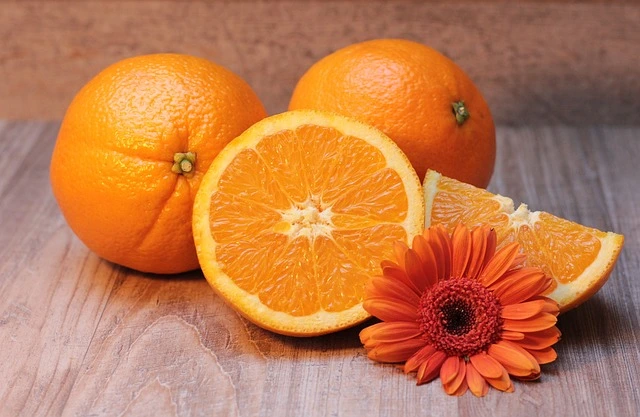Arabic for orange is:
برتقال
(burtuqal)
How to write orange in Arabic
For learning how to write in Arabic watch this video.
Some sentences using برتقال in Arabic:

- أحب أن آكل برتقالي في الإفطار.
- I like to eat an orange for breakfast.
- البرتقالي لون جميل ومنعش.
- Orange is a beautiful and refreshing color.
- قمت بشراء عصير البرتقالي من السوق.
- I bought orange juice from the market.
- تفضل بتذوق هذا الحلوى البرتقالية، إنها لذيذة!
- Try this orange-flavored dessert; it’s delicious!
- البرتقالي يحتوي على فيتامين سي الذي يعزز الجهاز المناعي.
- Oranges contain vitamin C, which boosts the immune system.
Derived From:
The root letters “B-R-T-Q-L” in Arabic are associated with the word “برتقال” (pronounced “burtuqal”), which translates to “orange” in English.
Some more words with same root letters:
- برتقان (burtuqan) – Mandarin (the fruit)
- برتقالي (burtuqali) – Orange (adjective, referring to the color)
- تبرقل (tabraqal) – To turn orange or reddish
- مبرتقل (mubartiqal) – Having an orange color
Some more fruits name in Arabic
- Apple – تفاحة (Tufah)e
- أحب أن آكل تفاحة في الصباح.
- (I like to eat an apple in the morning.)
- أحب أن آكل تفاحة في الصباح.
- Banana – موز (Mawz)
- الموز هو فاكهة لذيذة ومفيدة.
- (Banana is a delicious and nutritious fruit.)
- الموز هو فاكهة لذيذة ومفيدة.
- Orange – برتقال (Burtuqal)
- اشتريت برتقالين للعائلة.
- (I bought two oranges for the family.)
- اشتريت برتقالين للعائلة.
- Grapes – عنب (Anab)
- عنب الطعام المثالي للوجبات الخفيفة.
- (Grapes are the perfect snack.)
- عنب الطعام المثالي للوجبات الخفيفة.
- Mango – مانغو (Mango)
- المانجو طعمها رائع ومنعش.
- (Mango tastes wonderful and refreshing.)
- المانجو طعمها رائع ومنعش.
- Watermelon – بطيخ (Bateekh)
- البطيخ هو خيار مثالي لمواجهة الحر الصيفي.
- (Watermelon is the perfect choice to beat the summer heat.)
- البطيخ هو خيار مثالي لمواجهة الحر الصيفي.
- Pineapple – أناناس (Ananas)
- أحب أن آكل قطعة من الأناناس بين الوجبات.
- (I like to eat a piece of pineapple between meals.)
- أحب أن آكل قطعة من الأناناس بين الوجبات.
- Strawberry – فراولة (Frawlah)
- الفراولة تضيف نكهة لذيذة إلى الحلويات.
- (Strawberries add a delicious flavor to desserts.)
- الفراولة تضيف نكهة لذيذة إلى الحلويات.
- Kiwi – كيوي (Kiwi)
- الكيوي يحتوي على العديد من الفيتامينات والمعادن.
- (Kiwi is rich in vitamins and minerals.)
- الكيوي يحتوي على العديد من الفيتامينات والمعادن.
- Peach – خوخ (Khokh)
- الخوخ ذو نكهة حلوة ومنعشة.
- (Peach has a sweet and refreshing flavor.)
- الخوخ ذو نكهة حلوة ومنعشة.
